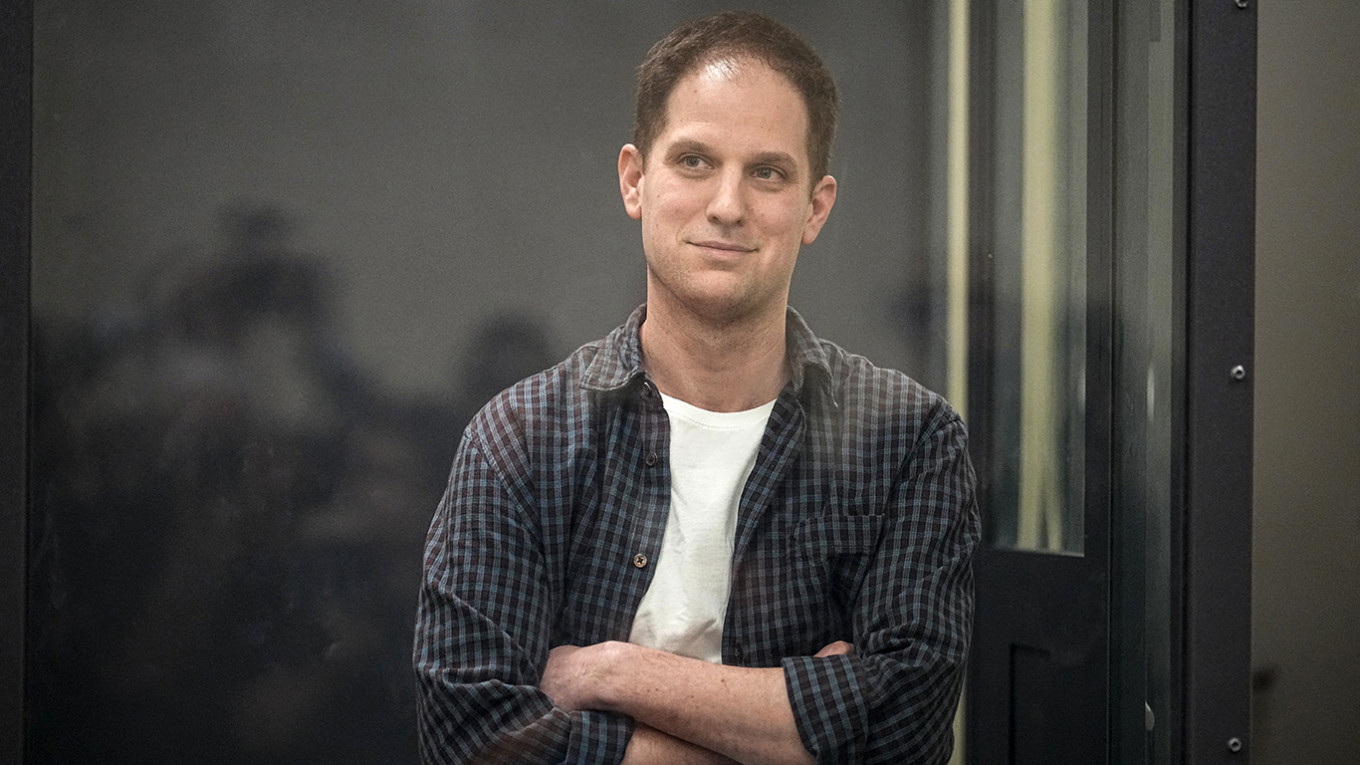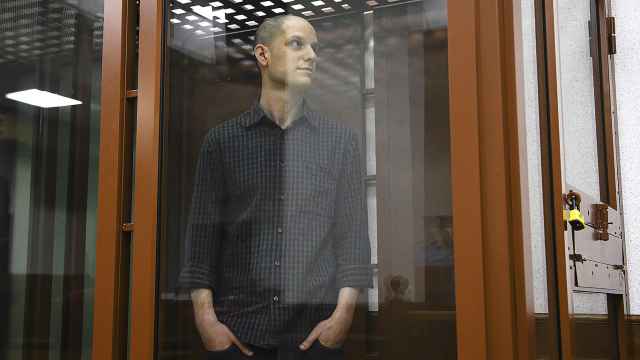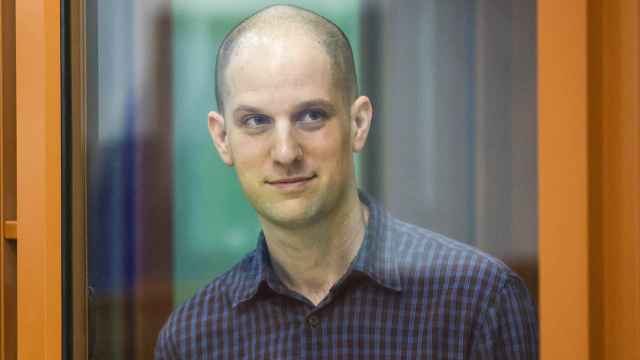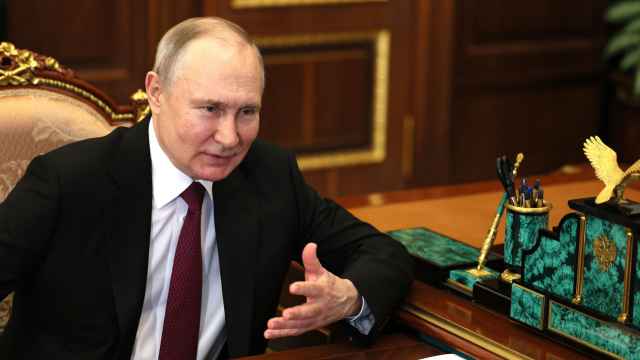Russian prosecutors sent US journalist Evan Gershkovich's case to court on Thursday, paving the way for him to be tried on espionage charges rejected by his employer and the White House as a sham.
The Wall Street Journal reporter was arrested in March 2023 while on a reporting trip to the Urals city of Yekaterinburg and has been held in Moscow's notorious Lefortovo prison since.
In a statement Thursday, Russia's prosecutor general accused him of working for the CIA and "collecting secret information" about tank maker Uralvagonzavod in the Sverdlovsk region where he was arrested.
It said it had sent a criminal case against him to Sverdlovsk Regional Court in Yekaterinburg "for consideration on its merits," without saying when a trial would take place.
The United States said the charges had "zero credibility" and the Wall Street Journal slammed Russia's announcement as "outrageous."
"Evan Gershkovich is facing a false and baseless charge. Russia's latest move toward a sham trial is, while expected, deeply disappointing and still no less outrageous," the Journal's chief editor Emma Tucker and top executives said in a statement.
Moscow had previously not provided any public details of its case against Gershkovich, saying only that he was "caught red-handed."
Gershkovich became the first Western journalist since the Soviet era to be arrested for spying in Russia when he was detained.
The 32-year-old faces up to 20 years in prison if found guilty.
Yevgeny Smirnov, a lawyer from the Perviy Otdel human rights project, told The Moscow Times that Gershkovich's trial will be held behind closed doors.
"The [Sverdlovsk] court has no chance of holding an open session…because the Prosecutor General accuses Evan of gathering information constituting state secrets," said Smirnov, who represented Ivan Safronov, a Russian journalist sentenced to 22 years in prison for treason in 2022.
"This means the case materials will include state secrets, and, with such information present, the court sessions must be held behind closed doors," Smirnov said.
Wrongfully detained
Washington has accused Moscow of arresting U.S. citizens on baseless charges to use them as bargaining chips to secure the release of Russians convicted abroad.
The U.S. government has declared Gershkovich as wrongfully detained, meaning it effectively regards him as a political hostage.
Russian President Vladimir Putin said in February he would like to see Gershkovich released as part of a prisoner exchange.
In remarks to conservative American TV commentator Tucker Carlson, he said talks between Russia and the United States about a possible swap were ongoing.
However the Russian leader made clear he wanted any deal to involve the release of a Russian jailed in Germany for killing a Chechen dissident.
Among other U.S. citizens detained in Russia is reporter Alsu Kurmasheva, detained last year for failing to register as a "foreign agent." Her employers denounced the case against her as politically motivated.
Former U.S. Marine Paul Whelan, in prison in Russia since 2018 and serving a 16-year sentence on espionage charges, is also pushing to be included in any future prisoner exchange.
Gershkovich's family told AFP earlier this year they were counting on a "very personal" promise from President Joe Biden to bring him home.
At Lefortovo prison, the reporter shares a small cell with another inmate.
He gets an hour-long walk in a small prison yard every day, tries to stay fit through exercise and relies on fruit and vegetables sent by friends to supplement the meager prison diet.
It is still possible for Gershkovich to be freed in a prisoner exchange and returned home to the U.S., lawyer Smirnov said.
"You see, there is no such legal procedure as a [prisoner] swap," he said. "Swaps are a political will of representatives of two states implemented through legal procedures."
These exchanges are typically formalized through a presidential pardon, which can only be issued after the sentence enters into legal force, he said.
"In any case, it will be necessary [for Gershkovich’s case] to go through the original jurisdiction court and wait for the sentence to become final," Smirnov said.
But Russia has the "upper hand" in any exchange, as it holds more potential candidates for prisoner swaps compared to its Western adversaries.
"Several Americans are in Russian prisons, as well as many Europeans, including French and Germans, among others. Meanwhile, there are not many Russian citizens abroad whose return is of interest to the Russian authorities," Smirnov said.
"It's as if Russia has 50 aces while the West has only a couple."
AFP contributed reporting.
A Message from The Moscow Times:
Dear readers,
We are facing unprecedented challenges. Russia's Prosecutor General's Office has designated The Moscow Times as an "undesirable" organization, criminalizing our work and putting our staff at risk of prosecution. This follows our earlier unjust labeling as a "foreign agent."
These actions are direct attempts to silence independent journalism in Russia. The authorities claim our work "discredits the decisions of the Russian leadership." We see things differently: we strive to provide accurate, unbiased reporting on Russia.
We, the journalists of The Moscow Times, refuse to be silenced. But to continue our work, we need your help.
Your support, no matter how small, makes a world of difference. If you can, please support us monthly starting from just $2. It's quick to set up, and every contribution makes a significant impact.
By supporting The Moscow Times, you're defending open, independent journalism in the face of repression. Thank you for standing with us.
Remind me later.






